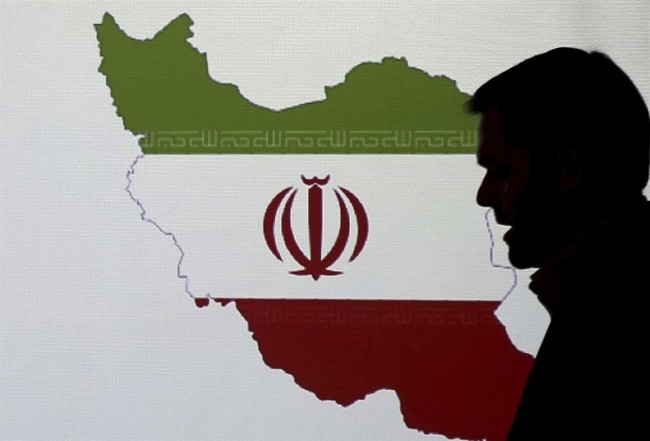We support our Publishers and Content Creators. You can view this story on their website by CLICKING HERE.

It’s not enough that the Iranian theocrats want to kill Donald Trump. They are continuously trying to read his mail, which is not only extremely impolite but in the context of Trump running for president, malicious and annoying as well.
Advertisement
Henry Stimson, the secretary of state during World War I, ordered the closing of America’s “Black Chamber,” the forerunner of the NSA. “Gentlemen do not read each other’s mail,” Stimson sniffed. Times have changed since then, and reading gentlemen’s mail and emails and listening to their phone calls, and spying on their sex lives is all the rage.
Iran is continuing to hack into Donald Trump’s campaign. American media outlets are keeping what goodies they’re getting under wraps. Even far-left sites like Popular Information run by former ThinkProgress editor Judd Legum have refused to publicize the details of the hacks. The reason? They say that “the stolen materials do not provide the public with any fundamental new insight about Trump or his campaign. So, on balance, the relevant factors argue against publication.”
In other words, there isn’t anything really juicy in the hacked material, so we’re going to avoid the firestorm of controversy that would come down on us if we published anything from the hack and keep it to ourselves.
Legum − whose emails to Hillary Clinton’s 2016 presidential campaign chairman were hacked by Russia and released by Wikileaks − wrote that he would not publish the Trump documents he’d received, but he provided details of how he was approached by the “Robert” persona.
“Robert” first sent Legum the cover sheet of a dossier compiled on Ohio Sen. JD Vance last February, long before Trump selected Vance as his running mate.
The purported intermediary eventually sent Legum a 271-page Vance dossier, along with similar dossiers on two other potential Donald Trump running mates — a 382-page document on North Dakota Gov. Doug Burgum and a 550-page document on Florida Sen. Marco Rubio, both from last spring. All of the dossiers, he said, were marked “Privileged & Confidential.”
Advertisement
The story about the Vance dossier is old news, but Legum detailed a letter from Trump’s attorney to the New York Times dated September 15 that was more than a month after the original hack became known.
Iran still has access to Trump’s campaign staff computers.
The question is why the Washington Post, the New York Times, Politico, and other news sites that shared the hacked Hillary Clinton emails won’t share the Trump emails.
Washington Post Executive Editor Matt Murray, for example, said he “thought about who was likely to be leaking the [Trump] documents, what the motives of the hacker might have been, and whether this was truly newsworthy or not.” But in 2016, the paper knew that Russia was likely behind the hack of the documents and was using them to interfere with the presidential election. Nevertheless, the Washington Post’s coverage included excerpts that were not, by any fair definition, “truly newsworthy.”
It’s a different world in 2024 compared to 2016. It wasn’t clear in 2016 until after the election that Russia had hacked the emails in order to try and influence the election. Wikileaks released the emails, and news outlets saw the information as fair game.
Advertisement
Trump and his tech people have got to get a handle on this problem and end the hacks. The media has been hesitant to release anything, but that may change if the hacks continue.

 Conservative
Conservative  Search
Search Trending
Trending Current News
Current News 







